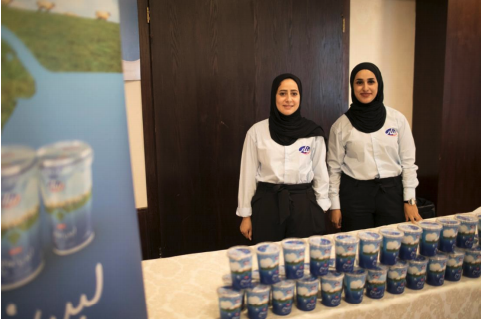FRESH AIR
Australia cuts Palestinian aid by 25%
May 7, 2021 | Naomi Levin

Australia’s foreign aid to the Palestinian Territories has been cut by 25% over the past year, with funding redirected and long-running programs brought to an end.
The cuts – from $44.1 million in 2019/20 to $29.8 million in 2020/21 – are due to a range of factors, including concerns over the misuse of funds and changing government priorities.
With Prime Minister Scott Morrison declaring that “our Pacific Island family must be a focus of international support”, it looks unlikely that Australia’s aid to the Palestinian Territories will be restored to previous levels in the 2021/22 Commonwealth Budget, to be released in the second week of May.
In the past 12 months, Australia’s contribution to the United Nations Relief and Works Agency for Palestine Refugees (UNRWA) has been halved. Then, in recent weeks, it was confirmed that the 16-year-old Australian Middle East NGO Cooperation Agreement (AMENCA) will soon end. Australia’s direct funding to the Palestinian Authority was axed in 2018.
The only new funding commitment has been a pledge to assist Palestinians with their response to the COVID-19 pandemic. However, neither the total value of this assistance nor a list of recipients of funds for 2020-21 has been announced, aside from a $1 million contribution to the World Health Organisation to assist with the pandemic response in the West Bank and Gaza.
These cuts represent the most significant changes to Australia’s aid contribution in the Palestinian Territories in more than a decade.
AMENCA was introduced in 2005 by the Howard Government and was at the end of its third iteration. The AMENCA program funded a variety of NGOs to enhance economic opportunities for Palestinians living rurally, focussing particularly on assisting small-scale farmers. While Government evaluations always assessed the program as successful, it was not without its controversies.
In 2016, Mohammad El Halabi, the Gaza branch director of charity World Vision, was arrested and charged by Israel with diverting aid to Hamas. World Vision was a recipient of AMENCA funds and its funding was suspended following El Halabi’s arrest.
In June 2018, the Australian Government suspended funding to another AMENCA provider, Union Aid Abroad-APHEDA, after it was revealed that members of a terrorist organisation were being employed by one of the NGO’s partners. This funding resumed in 2019 after an independent investigation declared that Australian Government money had not been directed to support terrorism.
Then, in March 2021, a DFAT official confirmed that the AMENCA program would end, saying the Government keeps “our aid program under constant review, looking at how we can best make it efficient and effective in a very complex operating environment.”
With UNRWA, once Australia’s five-year strategic partnership ended in 2020, the Australian Government quietly reduced funding to $10 million, half its previous level. There was no official announcement marking the change, but a DFAT official told Senate Estimates “that cut was indeed a budget cut; it wasn’t a cut based on the performance of the organisation.”
This was a strange admission considering the scale and magnitude of concerns about UNRWA operations and the fact that DFAT has repeatedly raised these concerns with UNRWA leadership.
In October 2020, Dr Angela McDonald, DFAT’s First Assistant Secretary, Global Counter-Terrorism, Middle East and Africa Division, said she had spoken with UNRWA’s Director-General Philippe Lazzarini in August and again in October about Australia’s “expectations for good governance and the management of UNRWA”. She continued: “I also reiterated our expectations around education and … our expectation around tolerance, non-discrimination, equality and neutrality in the education programs that UNRWA supports through the schools.”
Changes to funding for AMENCA and UNRWA followed the 2018 decision by then-foreign minister Julie Bishop to cease providing Australian taxpayers’ funds to the Palestinian Authority (PA). Bishop made her decision after requesting that the PA guarantee that Australian aid was not used to pay stipends to Palestinian terrorists or their families.
When no such guarantee was provided, Bishop redirected funding away from the Palestinian Authority to the UN’s Office for the Coordination of Humanitarian Affairs to the Occupied Palestinian Territory (OCHA). After a year, Australia ceased funding OHCA, again with no fanfare or explanation. But questions had been asked about this funding as well, with Australia providing $4.6 million to a range of NGOs via OCHA, some of which had been found to have links to terrorist groups or campaigns to demonise Israel.
With the Australian Government due to announce its 2021/22 Budget in coming days, it remains to be seen whether funding to the Palestinian Territories will be maintained at 2020/21 levels or cut even further.
Tags: Australia, Palestine, Palestinian, Scott Morrison, UNRWA, foreign aid
RELATED ARTICLES

Enormous hope that Iran is being liberated: Colin Rubenstein on Sky News

He survived Bondi. Now he’s fighting back: Arsen Ostrovsky addresses AIPAC conference





















